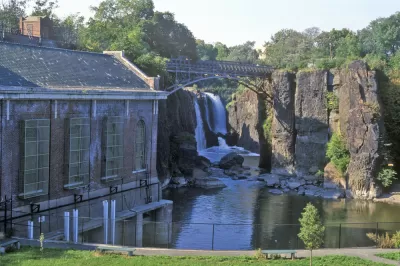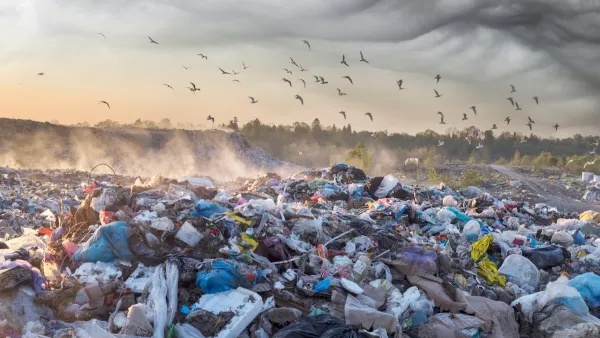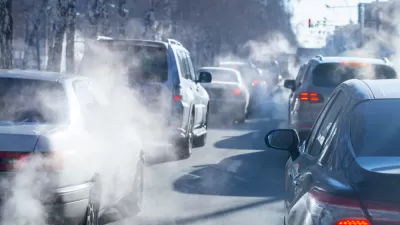Hydroelectric generation itself doesn’t produce greenhouse gases, but it does rely on the creation of reservoirs that release methane into the air.

A forthcoming study from Washington State University finds that reservoirs—including those created by hydroelectric dams—might produce 25 percent more greenhouse gas emissions than previously thought.
As CrossCut points out, "this could have implications for regions like the Northwest, which rely on hydroelectric power to meet its power demands."
The study looked at other man-made reservoirs as well, such as those used for drinking water and irrigation. Its findings may be surprising:
When all those man-made water bodies are added up, their combined emissions make up 1.5 percent of the world’s greenhouse gas pollution.
Put another way, if reservoirs were a country, they’d be the 8th largest emitter of greenhouse gasses like methane and carbon dioxide.
FULL STORY: WSU: Hydropower dams contribute to climate change

Planetizen Federal Action Tracker
A weekly monitor of how Trump’s orders and actions are impacting planners and planning in America.

Maui's Vacation Rental Debate Turns Ugly
Verbal attacks, misinformation campaigns and fistfights plague a high-stakes debate to convert thousands of vacation rentals into long-term housing.

Restaurant Patios Were a Pandemic Win — Why Were They so Hard to Keep?
Social distancing requirements and changes in travel patterns prompted cities to pilot new uses for street and sidewalk space. Then it got complicated.

In California Battle of Housing vs. Environment, Housing Just Won
A new state law significantly limits the power of CEQA, an environmental review law that served as a powerful tool for blocking new development.

Boulder Eliminates Parking Minimums Citywide
Officials estimate the cost of building a single underground parking space at up to $100,000.

Orange County, Florida Adopts Largest US “Sprawl Repair” Code
The ‘Orange Code’ seeks to rectify decades of sprawl-inducing, car-oriented development.
Urban Design for Planners 1: Software Tools
This six-course series explores essential urban design concepts using open source software and equips planners with the tools they need to participate fully in the urban design process.
Planning for Universal Design
Learn the tools for implementing Universal Design in planning regulations.
Heyer Gruel & Associates PA
JM Goldson LLC
Custer County Colorado
City of Camden Redevelopment Agency
City of Astoria
Transportation Research & Education Center (TREC) at Portland State University
Jefferson Parish Government
Camden Redevelopment Agency
City of Claremont





























